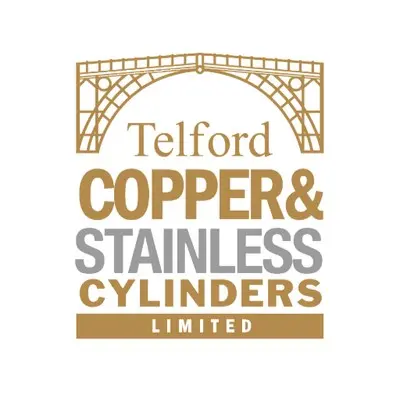- Home
- Products
- Heating & Hot Water
- Hot Water Cylinders
READY WHEN YOU ARE
Hot Water Cylinders
When it comes to reliable hot water, few things work harder behind the scenes than your cylinder. Whether you're running the morning shower, filling the bath or powering the kitchen sink, your hot water cylinder keeps everything flowing smoothly.
At Thames Valley Plumbing Supplies, we provide a full range of hot water cylinders to suit all property types and heating systems. From traditional vented setups to modern unvented solutions, we stock trusted products for domestic and commercial needs alike. Whether you're refurbishing a single flat or managing a multi-storey build, getting the right cylinder is essential.
How Do Hot Water Cylinders Work?
Think of a hot water cylinder like a giant kettle or a thermal flask. It stores heated water and keeps it warm until you need it. Some cylinders heat water directly using an internal electric element, while others rely on an external boiler or renewable source like solar panels.
Once hot, the water sits inside the insulated tank, ready to be sent to your taps, showers or appliances on demand. The type of cylinder you need depends on your heating system, water pressure and the size of your property.
Before you dive into choosing a cylinder, it's worth understanding the different types available and how they work. From vented to unvented, direct to indirect, each has its own strengths depending on your setup. Let's take a closer look.
Types of Cylinders
Hot water cylinders come in several varieties, each designed to suit different systems and needs. Understanding the key differences will help you choose the right cylinder for your property and hot water demands.
Vented vs Unvented Cylinders
Vented Cylinders
- Simple system with fewer parts
- Usually cheaper to buy and maintain
- Compatible with older plumbing setups
- Doesn't rely on high mains pressure
- Lower water pressure at taps and showers
- Needs space in the loft for a cold water tank
- Less efficient than modern alternatives
Unvented Cylinders
- High water pressure for better showers and faster baths
- No need for a cold water tank in the loft
- Space-saving and neater installation
- Hygienic, sealed system
- Higher upfront cost
- Must be installed by a qualified G3-certified engineer
- More components, so a bit more can go wrong
Direct vs Indirect Cylinders
Direct Cylinders
- Simple to install and operate
- Doesn't rely on an external boiler
- Good for properties without gas
- Can be used as a backup system
- Typically more expensive to run (especially on standard electricity tariffs)
- Slower to reheat compared to boiler-fed systems
Indirect Cylinders
- Generally more energy-efficient
- Heats water faster when paired with a boiler
- Can still include an electric immersion heater for backup
- Requires a compatible boiler
- Slightly more complex to install
Solar Cylinders
- Uses free energy from the sun, reducing energy bills
- Environmentally friendly
- Works alongside your existing boiler
- Higher upfront cost for the cylinder and solar system
- Needs a suitable roof for solar panels
- Performance depends on sunlight and weather
Brands We Stock
We supply hot water cylinders from some of the industry's most trusted names. Known for their build quality, reliability and long-term performance, these brands are used by professional installers across the UK in everything from new builds to renovations.





Compliance and Safety
Unvented hot water cylinders are classed as pressurised systems, which means they come with specific safety requirements under UK law. By regulation, they must be installed and signed off by a qualified professional with G3 certification.
This is not just a box-ticking exercise. These systems hold hot water under pressure, so correct installation is essential to keep everything safe and running as it should. The right safety valves, expansion controls and discharge pipework all need to be in place and properly set up.
If you are working on a project involving an unvented cylinder, make sure the installer is fully certified. It protects the property, the people in it and keeps everything within the current building regulations.
